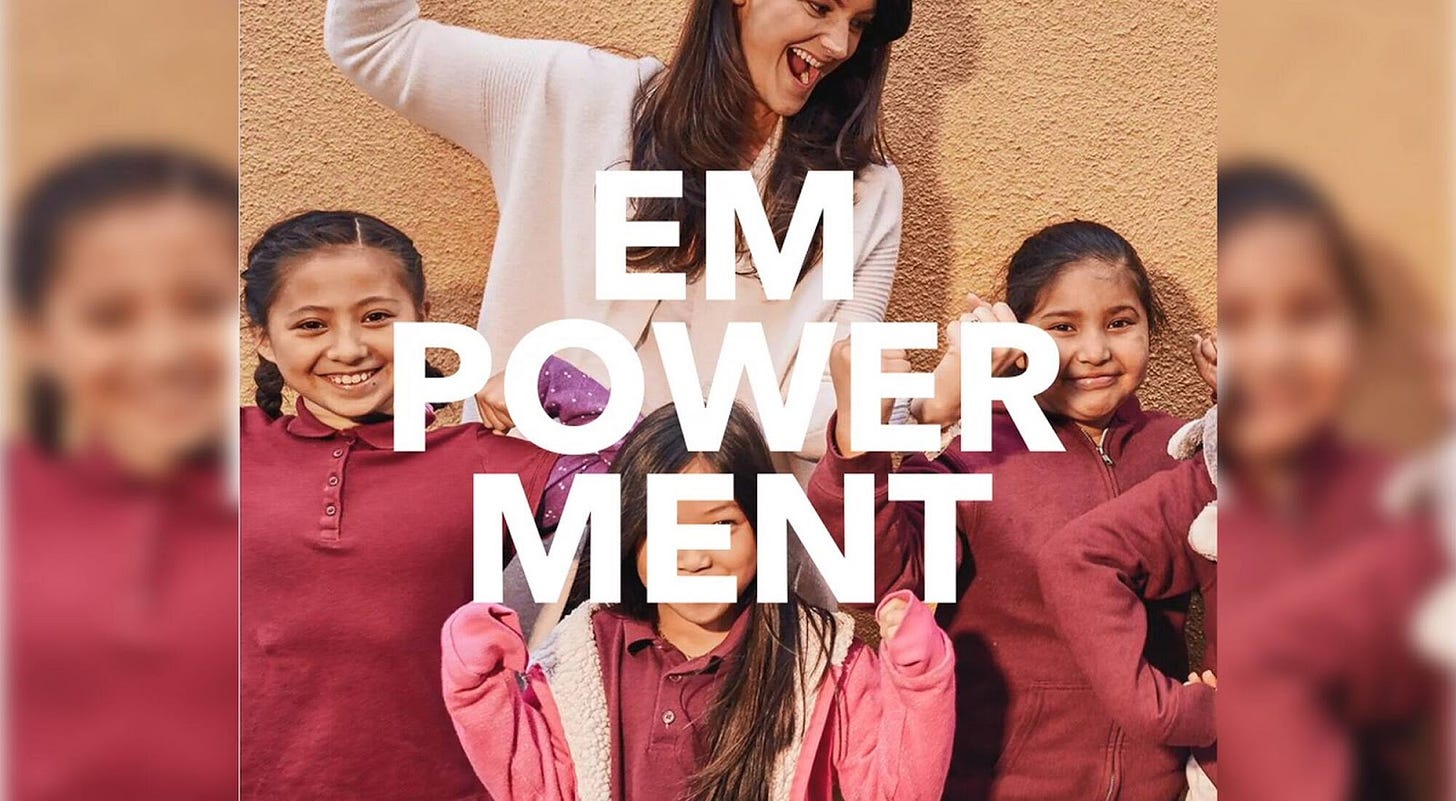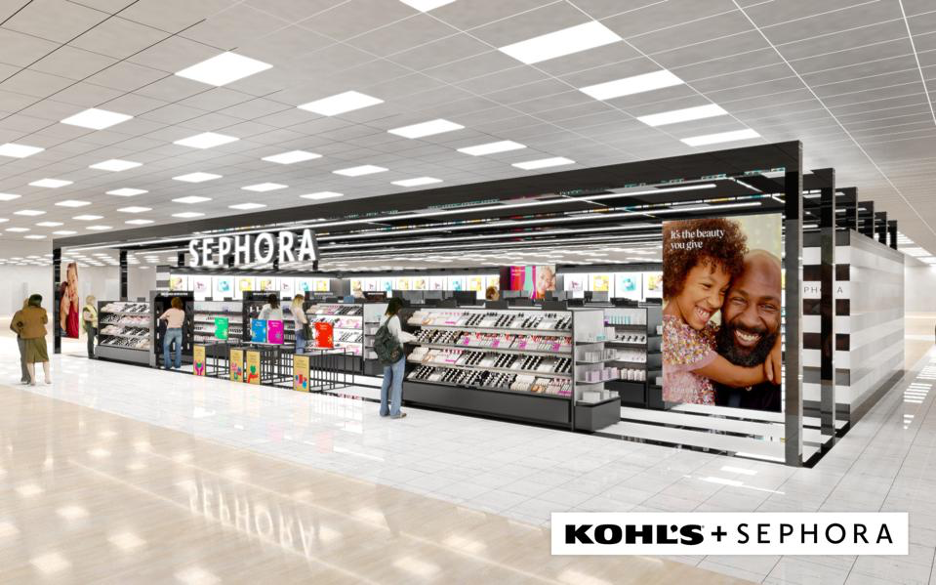Content Commerce Insider Is Moving to Jing Daily
Plus: Getting Women's Day right, co-branded retail and destinations, and TikTok's data problem.
Since our launch in February 2020, Content Commerce Insider has sought to provide a window into how brands create content to drive revenue, highlighting strategies that include brand films, sponsorships, collaborations, e-commerce initiatives, and more. The speed with which global content commerce has evolved over the past year has been stunning, driven by a worldwide pandemic that has forced brands to reevaluate how they reach consumers and keep them engaged.
Now, we are pleased to announce that CCI will join our sister publication Jing Daily. We will continue to analyze trends and developments in content commerce, but starting next week this content will be published on the Jing Daily website and delivered to readers via the Jing Daily Content Commerce Edition newsletter.
As a current CCI subscriber, you’ll continue to receive our newsletter, which will have a refreshed, streamlined design and upgraded content. We will shift from sending the newsletter three times a week to two, with a China focus on Tuesdays and a global emphasis on Fridays.
Thank you for the trust you’ve placed in CCI and for the valuable feedback you’ve provided our team since launch. Your input has been critical in helping us constantly improve and evolve over the past year, and we look forward to only building upon our strengths in the months and years to come.
— The CCI team
Women’s Day Around the World: Did Luxury Brands Get It Right?
by Sadie Bargeron
When International Women’s Day got started back in 1911, there was no internet, or the seemingly endlessly rehashed slogans like #pressforprogress or #balanceforbetter. But more than a century later, the original impetus behind Women’s Day is still with us, as true gender equality has yet to be achieved in any nation. Two examples from labor: In December 2020 alone, women in the United States lost 156,000 jobs, while men gained 16,000 overall, and in Europe, a woman’s median net worth is 62% that of a man’s. Hashtags alone won’t budge numbers like these.
For real change, the core messaging and practices of Women’s Day need to be implemented year-round, and brands are being forced to look beyond using March 8 as a shallow marketing opportunity. Even in China, where Women’s Day has been transformed into yet another occasion for a shopping festival, encouraging women to “treat themselves” and their loved ones to shower them with gifts, brands have started to move away from referring to the date as ”Queen’s Day” or “Goddess Day” while shifting their focus from consumption to activism.
As a result, in 2021 Women’s Day in the West felt even quieter than in previous years, with many consumers taking to Twitter to denounce brands that pushed discount codes and promoted slogan t-shirts in their email inboxes.
The experience of the global coronavirus pandemic over the past year has made consumers weary of superficial brand messaging. Hayley Ard, a cultural anthropologist at marketing agency Portas, told Content Commerce Insider, “Since Covid came along, we’ve seen mass introspection and re-examination of how we live and want to live. We’ve woken up to what really matters — people and the planet — and we’ve turned against rabid consumerism.” Against that context, she said, “I can’t see [Women’s Day] becoming a fully fledged shopping festival in the West.”
Despite an apparent decline in the commercialized noise associated with Women’s Day, some brands in the West still jumped on the marketing wave by showing support for women’s causes through donations, ultimately boosting their brand images. DKNY gave a percentage of net sales between March 3 and March 8 to the New York-based Women in Need, Anoushka donated 10% of each sale from its Helping Hands collection of pendants to Prince’s Trust Women Supporting Women initiative, and 16Arlington had a dozen women collaborate on a visual project to drive sales for the brand’s signature Seymour shirt, with a percentage donated to Refuge.
In a larger campaign, luxury e-commerce platform Net-a-Porter invited 12 female designers (including Stella McCartney and Anya Hindmarch) to create an exclusive Women’s Day collection across the categories of ready-to-wear, lifestyle and jewelry, with all profits going to Women for Women International (UK).
But perhaps the most meaningful luxury brand efforts were those that opted out entirely of promoting collections and sales by raising awareness of issues in a way that didn’t involve shopping.
Burberry donated to The Prince’s Trust’s Women Supporting Women initiative, as well as continuing its ongoing support of London Youth by funding programs for young women and girls across 600 of the charity’s community youth organizations. The British luxury house also released a short film in collaboration with the youth club charity discussing modern womanhood, featuring supermodels Irina Shayk and Jourdan Dunn, trans-icon Aaron Philip, and other female stars.
Another notable short film commemorating Women’s Day came from Marc Jacobs, which launched four sessions of live Instagram conversations with inspiring women who have shaped the fashion industry, from Naomi Campbell to Adut Akech. Christian Dior Parfum also opted for a short film, released as part of their #DiorStandsWithWomen series which started last year, supporting brand muse Charlize Theron’s Africa Outreach Program.
Highlighting broader efforts, on March 8 LVMH published a blog post detailing its work on gender equality, noting 148 different internal initiatives had been identified in 2020 to promote diversity and inclusion. The luxury conglomerate is also hosting a series of workshops and masterclasses throughout the year via their internal digital platform SHERO, which was created to facilitate employee discussions on gender.
A greater impact may be achieved when brands address the internal workings of their organizations and contribute to women’s charities year-round, rather than temporarily championing the cause for a day with an obvious sales pitch attached.
“There’s got to be a shift from performative messaging to playing an additive role in people’s lives,” Ard said. “Hollow soundbites and fleeting gestures aren’t going to cut it. Brands need to radiate energy and support by unlocking opportunities, giving access to resources and democratizing education. This isn’t about marketing. It’s about really thinking about how you can make the world better.”
In 2021, consumers yearn for transparency, sincerity, and moral leadership from brands. Despite the temptation to emulate the Chinese model and its commercial success, Women’s Day is now less about marketing opportunities, and even more so as women the world over have felt a disproportionate impact from the coronavirus pandemic.
CollabBrands: The Co-Branded Experience, Part Four
In the fourth part of this series on co-branded experiences, we turn to retail and destinations. Co-branding has emerged as an optimal marketing strategy for driving consumers to stores and other venues in the age of Instagram. The unique backdrops and accompanying social media posts please the consumer, advertise the brand, and ultimately sell more products.
Beauty Makes Strange Bedfellows
By the fourth quarter of 2021, as consumers in various parts of the world begin to achieve herd immunity through vaccinations, the pent-up demand for experiences will create an in-store shopping boom for retailers that understand how to utilize experiential marketing for today’s consumers. During the pandemic, the growth of e-commerce has created significant challenges for traditional brick-and-mortar retailers, and some are turning to collaborations with former competitors to lure shoppers back into stores. Two examples in the United States are Sephora x Kohls and Ulta x Target.
The beauty business is a consumer products category that lends itself to experiential retail. The LVMH-owned Sephora is a multinational retailer of personal care and beauty products offering nearly 3,000 brands. Even before the pandemic, its stores offered more than just products. Sephora’s Beauty TIP workshops featured trained facilitators; in-store iPads offered Sephora Virtual Artist technology and tutorials; and its Beauty Boards shared a shoppable gallery of user-generated content on large digital screens.
Customer stations are equipped with their own products, iPads, and Wi-Fi, so shoppers can play, browse, and share looks on the digital screens and online. Sephora recently announced plans to open 260 new retail stores in the United States, with 200 of those operating as “Sephora at Kohl’s” shops inside the department store chain. Meanwhile, Ulta Beauty, the U.S.’s largest beauty retailer, is partnering with Target to create a “store-in-store” experience, with 100 planned to open this year. Both Sephora and Ulta Beauty utilize technology to create a safe, in-person experience for consumers to digitally sample shades and colors.
Media company Condé Nast — publisher of Allure, Vogue, The New Yorker, Glamour and GQ, among others — is launching a freestanding Allure store later this year in New York City’s Soho neighborhood, promising "a 360-degree immersive retail experience, featuring an expertly curated selection of the world’s best beauty products, led by Allure’s authoritative and trusted editorial voice." The store, which will be operated by Condé Nast in partnership with STÔUR Group, will bring a physical touchpoint to the Allure media brand. Spread out over 2,900 square feet and two floors, the store's shelves will correspond to Allure’s content and themes, including the publication's famed Best of Beauty Awards, with product changes on a seasonal basis.
Rolling Stones Retail in London
In September 2020, in the midst of the global pandemic, the first-ever dedicated retail store for a rock band opened in the heart of London’s Soho. Known as “RS No. 9 Carnaby Street” the store features Rolling Stones t-shirts, face masks, and brand collaborations from the likes of Baccarat, Stutterheim, and The Soloist, as well as an 80-piece fashion collection designed exclusively for the store by Bravado, the merchandising and retail arm of Universal Music Group. The location on Carnaby Street taps into the Stones’ origins, when Soho represented the epicenter of British counterculture and rock-and-roll.
Co-Branded Destinations for Travel, Tourism, and Retail
The "Friends" Experience, an interactive celebration of the television show, has announced it will reopen in Chicago and open its first flagship location in New York City on March 17. Created by Warner Bros. and Superfly X, it is designed to immerse fans in the universe of mega-hit 1990s sitcom, featuring recreated sets, original props and costumes, photo opportunities, a retail store, and the coffee shop of the series, Central Perk.
Ferrari World Abu Dhabi is an indoor amusement park on Yas Island in Abu Dhabi, United Arab Emirates. It is the first Ferrari-branded theme park and boasts the world’s largest space frame structure. Formula Rossa, the world's fastest roller coaster, is also located here. Ferrari World was named the "Middle East's Leading Tourist Attraction" at the World Travel Awards 2015 and 2016, and in the following two years, it was honored as the "Middle East's Leading Theme Park" at the World Travel Awards.
Located inside the futuristic theme park, the Abu Dhabi Ferrari World store welcomes visitors with a wide selection of products dedicated to the world of Formula 1™. The official store of the Red Team is a one-stop shop to buy the best of what Ferrari has to offer. The collection includes a wide range of products inspired by the history of the Scuderia and the racing world.
Steven Ekstract is Managing Director of Global Licensing Advisors, a consultancy that provides companies with insight and strategic direction to succeed in the $300 billion a year licensing business. Ekstract is the founder and former Publisher of License Global magazine, the leading information source for the consumer licensing business. He can be reached at Steven@globallicensingadvisors.com.
TikTok Take: How Much More Will Data Misuse Cost Bytedance?
by Sadie Bargeron
TikTok has come under fire again for its data handling practices, this time with allegations that information from users in the European Union is being sent to China.
Irish Data Protection Commissioner Helen Dixon said at an online event Wednesday, “TikTok tells us that EU data is transferred to the U.S. and not to China, however we have understood that there is a possibility that maintenance and AI engineers in China may be accessing data.” Dixon mentioned a “number of challenges” and that her office has had many meetings with the company since the Irish data regulator became the de facto supervisor for TikTok users in the EU in December 2020. (Under the EU’s data privacy law, the General Data Protection Regulation, one member state’s regulator can supervise international firms on behalf of the entire bloc.)
The news comes just two weeks after Bytedance announced that it would pay $92 million to settle a class-action suit over privacy violations in the United States. In that case, the plaintiffs claimed that TikTok was unlawfully extracting personal data from teenage users’ devices for targeted advertising. And back in 2019, TikTok paid $5.7 million to settle a complaint with the Federal Trade Commission concerning violations of the Children’s Online Privacy Protection Act (COPPA).
Child safety has continued to be a major concern that perhaps can only be met by limiting the usage and reach of some of TikTok’s most enthusiastic adopters. In Italy, the app was forced to ban those under the age of 13 after a 10-year-old girl died while filming a “blackout challenge,” and in January TikTok announced a series of limitations on the accounts of users under 16, including making them private by default and restricting comments from the public.
Coincidentally, while TikTok’s data exploitation has been trending across online conversations this week, filmmaker Shalini Kantayya announced that she is working on a TikTok feature documentary produced by Campfire, Forbes Entertainment, and Olive Hill Media. The film will explore how the social media app “has served as the catalyst for heated controversy and endless conspiracy theorizing involving the U.S., China, and a new tech-rooted Cold War that will shape the future of a global shared internet,” the filmmakers told Variety.
The Trump administration pushed data anxiety concerning TikTok to the forefront in 2020, citing the platform as a threat to national security, and threatening a ban or forced sale of TikTok’s U.S. operations. And now, with Biden putting plans to spin-off TikTok’s U.S. business into a separate, Walmart-controlled entity on hold, concerns about the company’s ties to its Chinese parent are likely to continue to grow.
In the meantime, be kind. That’s the value TikTok is promoting with a new feature that encourages users to think twice before they post mean or snarky comments. It’s at least another step towards making the platform a more manageable space for younger users, though it may not be enough to fend off deeper scrutiny of how the company manages what it knows about them.
Global News
$69.3 million was the winning bid for the artist Beeple’s NFT piece at Christie’s, a record for digital art and the third-highest auction price ever for a work by a living artist. New York Times
A group of crypto fans digitized a Bansky artwork, burned the original, and plan to auction it as an NFT, with the proceeds going to charity. Hypebeast
E.l.f. Beauty and Chipotle are launching their second collaboration with a makeup collection inspired by menu items and a vegan “Eyes, Chips, Face” bowl for ordering via the restaurant chain’s app. Glossy
Watches in Asia and art in America: A comparative visual analysis of preferred luxury investments from consumers around the world. Visual Capitalist
Luxury brand films are having a moment, thanks to brands such as Prada, Moschino, and Coach making the most of fashion weeks gone digital. New York Times
Lady Gaga will play Lady Gucci in an upcoming Ridley Scott movie chronicling the family drama behind the storied Italian luxury house. Vogue
Saint Laurent Creative Director Anthony Vaccarello is presenting a series of online shows by musicians performing live at the Saint Laurent Rive Droite store in Paris. Hero
Amazon Prime has launched a TikTok-exclusive series in France, with 12 episodes each under a minute long. Marketing Dive
Walmart hosted its second e-commerce livestream event on TikTok, featuring popular creators and influencers promoting beauty products from brand such as Bliss and Marc Jacobs fragrances. TechCrunch











